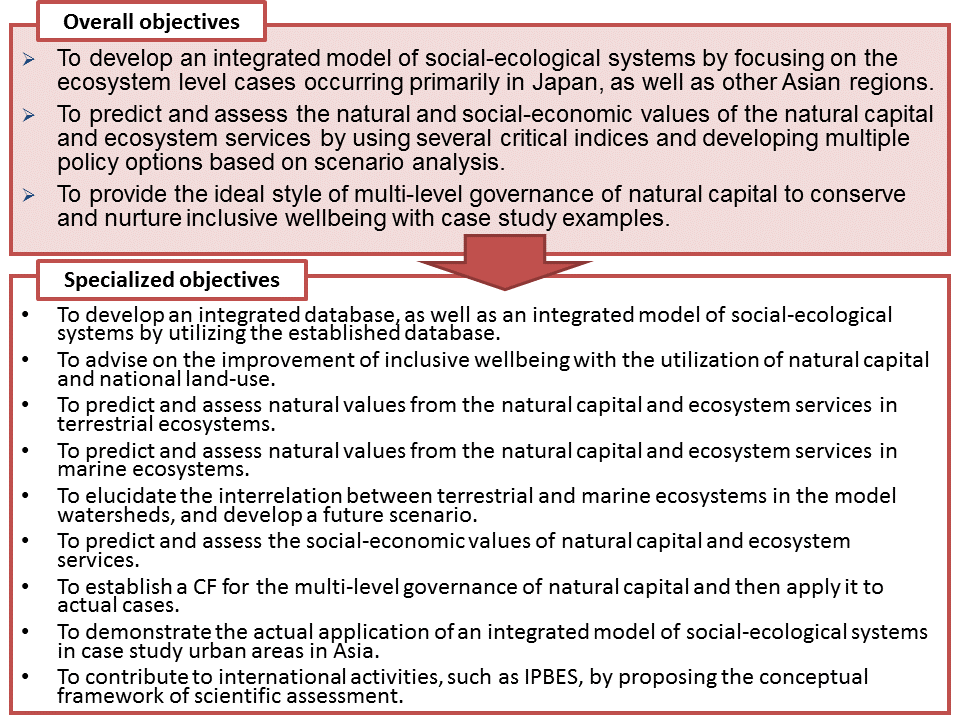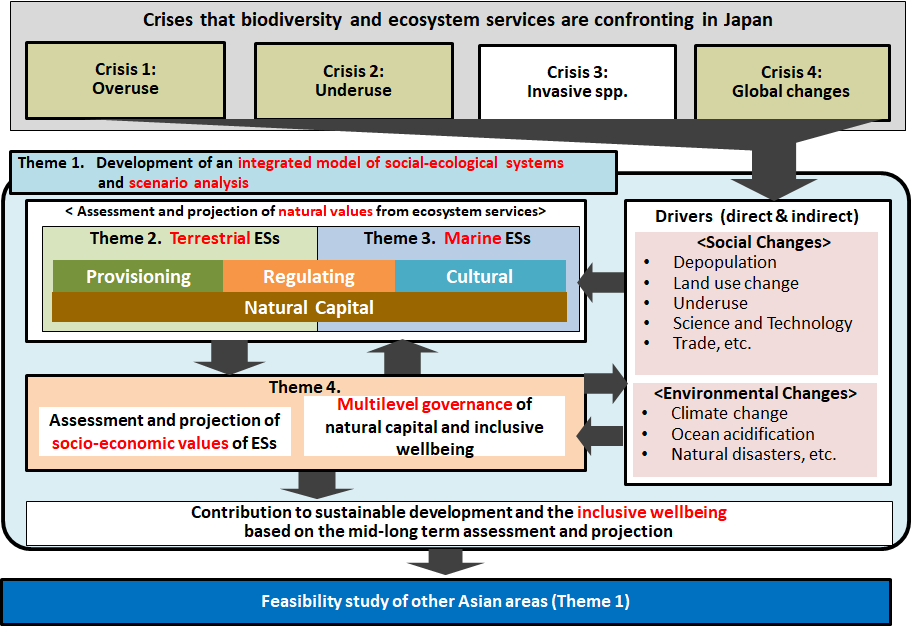Project
Background and purpose
Since its establishment, the Intergovernmental Science-Policy Platform on Biodiversity and Ecosystem Services (IPBES) has been expected to provide policymakers with scientific assessments about the state of arts knowledge about biodiversity, ecosystems and the various contributions they provide to people at both global and regional scales.
To foster the regional and sub-regional assessment for the Asian-Pacific Region (APR), the Technical Support Unit (TSU) has been established in Japan as one of subsidiaries of IPBES. As one of member countries of IPBES that host the TSU for APR, Japan is expected to lead the IPBES's assessments by applying predictive assessment procedures, including scenario analysis.
PANCES has been launched to respond to such scientific and policy needs, inviting 30 research institutes and more than 100 researchers across the country with the following PANCES will predicts and assesses future natural capital and ecosystem services (nature’s benefits to people) and their natural and social-economic values by building an integrated model of social – ecological systems. Through the presentation and analysis of several future scenarios, we aim to demonstrate the ideal form of a society in harmony with nature. It will also explore effective strategies to strengthen interface between science and policy and aim to contribute to domestic and international biodiversity policy and international frameworks. This includes, at domestic level, contribution to the review of Japan's National Biodiversity Strategy and Climate Change Adaptation Plan, paying special attention to the establishment of the society in harmony with nature. At international level, PANCES will contribute to ongoing scientific endeavors by IPBES including global, regional and thematic & methodological assessments through the provisions of scientific findings and innovative methodologies. More specifically, PANCES has the following objectives.
Overall and specialized objectives

Comprehensive contributions to biodiversity-related science and policy
Overall structure

The Expected Outputs and Outcomes
Outputs
Inputs to CBD, IPBES regional and global assessments, Ecologically or Biologically Significant Marine Areas (EBSAs) , and ecosystem-based climate change adaptation (IPCC).
Contributions to national and local biodiversity strategy action plans in Japan.
Outcomes
Promote implementation of Sustainable Development Goals (SDGs) and localization of Inclusive Wealth Index.
Collaborate with international global environment research initiatives such as Future Earth.
Contribute to the establishment of Green Economy in Asian region through efforts in International SATOYAMA Initiative.
Contribute to revitalization of rural economy as Japan's urgent issue through developing new business models and multilevel governance of natural capital.
Overall Roadmap
